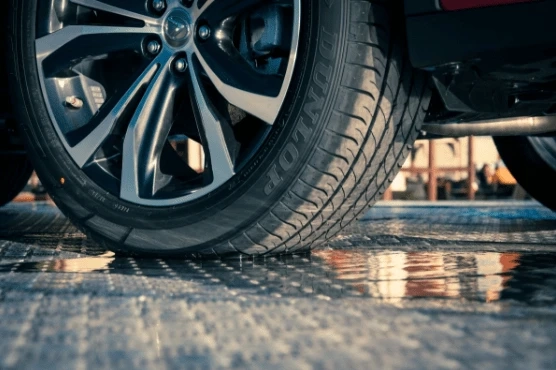In the search for a reliable all-terrain vehicle, SUV and truck tyres provide an essential level of durability and performance that can make or break your off-road experience. But what is the difference between these two tyre types?
Not only do they differ in size and construction, but major differences are found in traction, stability, fuel economy, and more, depending on their intended purpose.
Read further to compare SUV vs New Truck Tyres as we take you through their functionalities so you can select the best option for any outdoor exploration!
SUV Tyres Vs New Truck Tyres: How Do They Differ?
The automotive industry has seen many transitions, and tyre manufacturing is no different. With newer models of SUVs and trucks hitting the market every year, you may have seen many changes in tyre manufacturing, adding to the options available to consumers. People choose these vehicles for several reasons, including their strength, durability, and functionality. To keep these vehicles at their best, selecting the best tyre is vital to their upkeep.
How can I decide between truck tires and SUV tires? Please find out how they vary by reading on.
Load CapacityThe load capacity is one of the biggest distinctions between truck and SUV tires. Truck tyres are thicker and stronger; they are built to carry large loads and can support the weight of a truck and other cargo it may carry. On the other hand, SUV tyres are designed to carry less weight, making them compact and lighter. As a result, they do not affect the performance of the SUV as much as truck tyres do for trucks.
TractionTraction is another point where these two tyres differ. Due to the sizes of these vehicles, their needs in terms of grip on the road are quite different. Truck tyres have a deeper and more prominent tread that allows for good traction on various terrains, more so for off-roading. SUV tyres, on the other hand, have a shallower tread that focuses primarily on good traction on highways and other smooth surfaces, making them less suitable for off-road adventures.
Fuel EfficiencyThe SUV tire might be a better option if you are looking for better fuel efficiency. As mentioned earlier, SUV tyres are compact and lightweight, putting less strain on the vehicle and leading to better fuel economy. Truck tyres, on the other hand, are bulky and heavier. With the immense weight they need to carry, they consume a lot more fuel, leading to higher fuel costs.
Style and AppearanceAesthetics are important; manufacturers often produce SUVs and truck tyres with unique styles and appearances today. While both types of tyres might have similar-looking treads, the biggest difference is the sidewalls. Truck tyres tend to have a more aggressive appearance with thicker sidewalls, often marked with white lettering, while SUV tyres have a sleeker look and are designed to blend well with the vehicle's body.
PriceThe cost of tyres is another significant difference between SUVs and truck tyres. The new truck tyres prices are much more costly due to factors like their size, weight, and specific build. SUV tyres, on the other hand, are smaller and more compact, making them more affordable.
How to Make Your Tires Last Longer
Every vehicle needs tires; maintaining them properly is key to extending their lifespan. When purchasing tyres, it is important to consider the type of vehicle you have, such as an SUV. If you plan to buy SUV tyres, it can increase your vehicle's safety and performance, but it is equally important to maintain them.
Every 5,000 miles, you should rotate your tires and check their air pressure as part of routine maintenance. However, some recommendations will help make your tyres last even longer. Avoid driving aggressively or accelerating too quickly, and brake gradually rather than slamming on the brakes. Additionally, minimize the weight you carry in your vehicle, as excess weight can put additional stress on your tyres. Investing in quality tyres in the first place can also save you money eventually, as a new truck tyre price may be higher upfront but will last longer than a cheaper option.
By following these tips and taking care of your tyres, you can ensure safe and reliable driving for miles to come.
Conclusion:
While SUVs and truck tyres perform similarly, they also differ significantly. The amount of weight they can carry, their grip on the road, their fuel efficiency, their appearance, and the price; are all factors to consider when choosing between SUV tyres and truck tyres. Whether you are an off-road enthusiast or someone looking for an everyday ride, these differences should help you make an informed purchasing decision when looking for new tyres for your SUV or truck.


